10 Best Herbal Capsules For Infection

Herbal capsules are a popular form of natural medicine used to support the body's immune system and combat infections.
These capsules typically contain concentrated extracts of various herbs known for their antimicrobial, anti-inflammatory, and immune-boosting properties. Commonly used herbs include echinacea, garlic, ginger, and turmeric, each offering unique benefits in fighting bacterial, viral, and fungal infections. While herbal capsules are generally considered safe, they should be used under the guidance of a healthcare professional to ensure proper dosage and avoid potential interactions with other medications.
Overall, they can be a valuable complementary approach to conventional treatments for managing and preventing infections.
Table of Contents
- 1. Echinacea (Echinacea purpurea)
- 2. St. john's wort (Hypericum perforatum)
- 3. Ginger (Zingiber officinale)
- 4. Ceylon cinnamon (Cinnamomum verum)
- 5. Thyme (Thymus vulgaris)
- 6. Aloe vera (Aloe barbadensis)
- 7. Salvia (Salvia officinalis)
- 8. German chamomile (Chamomilla recutita)
- 9. Turmeric (Curcuma longa)
- 10. White cedar (Thuja occidentalis)
1. Echinacea (Echinacea purpurea)

Echinacea purpurea, commonly known as purple coneflower, is a popular herbal remedy often used to support the immune system and reduce the duration of colds and other upper respiratory infections.
Herbal capsules containing Echinacea purpurea are typically standardized to contain specific levels of active compounds, such as alkamides, caffeic acid derivatives, and polysaccharides, which are believed to contribute to its immune-boosting properties. Some studies suggest that Echinacea may help decrease the severity and duration of infections, although results can vary depending on the species, preparation, and dosage. These capsules are generally considered safe for most adults when used as directed, though they may interact with certain medications or cause allergic reactions in individuals sensitive to plants in the daisy family.
As with any supplement, it is advisable to consult a healthcare professional before use, especially for those with chronic conditions or taking prescription medications.
2. St. john's wort (Hypericum perforatum)

Hypericum perforatum, commonly known as St. John's wort, is a herbal supplement often used for its potential antimicrobial properties.
While primarily recognized for its use in treating mild depression, some studies suggest that it may have antibacterial and antifungal effects, making it a possible adjunct in the management of certain infections. The active compounds in hypericum perforatum, such as hypericin and hyperforin, are believed to contribute to its antimicrobial activity by disrupting microbial cell membranes and inhibiting essential metabolic processes. However, it is important to note that scientific evidence supporting its efficacy against specific infections is limited, and it should not replace conventional medical treatments.
As with any herbal remedy, it is advisable to consult a healthcare professional before using hypericum perforatum for infection-related concerns.
3. Ginger (Zingiber officinale)

Zingiber officinale, commonly known as ginger, has been traditionally used for its antimicrobial properties and is often incorporated into herbal capsules to support the body's natural defenses against infections.
These capsules typically contain a standardized extract of fresh or dried ginger root, which is rich in bioactive compounds such as gingerol and shogaol. The anti-inflammatory and antioxidant effects of ginger may help reduce the severity of symptoms associated with various types of infections, including respiratory and digestive tract infections. While ginger is generally considered safe for most people, it is advisable to consult a healthcare professional before using it as a supplement, especially for individuals with chronic conditions or those taking medications.
Overall, zingiber officinale herbal capsules can be a complementary approach to supporting immune health and managing mild infections, though they should not replace conventional medical treatments.
4. Ceylon cinnamon (Cinnamomum verum)
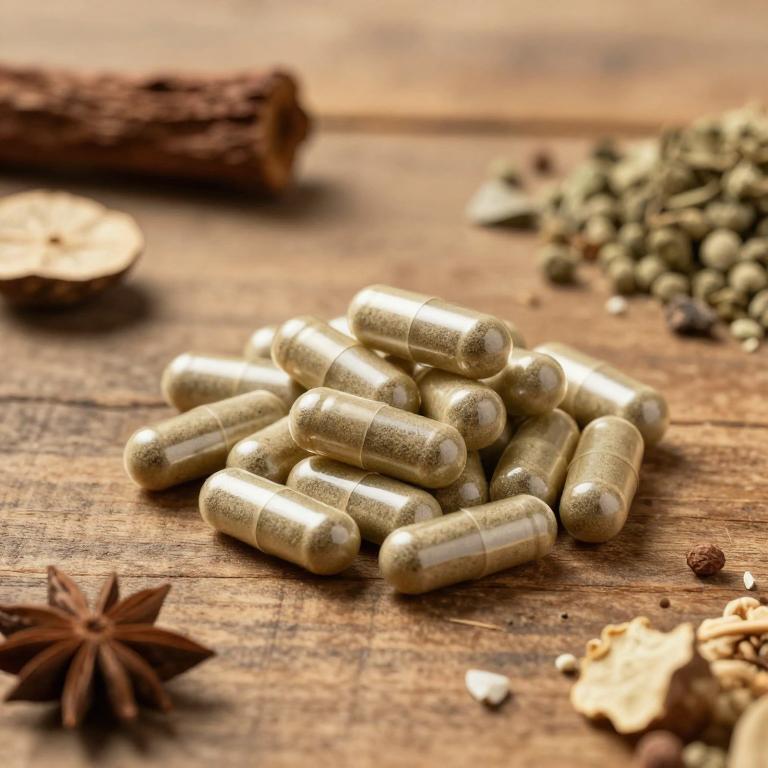
Cinnamomum verum, commonly known as true cinnamon, has been traditionally used for its antimicrobial properties, making it a potential natural remedy for infections.
The essential oils and bioactive compounds in cinnamon, such as cinnamaldehyde and eugenol, exhibit antibacterial, antifungal, and antiviral activities. Herbal capsules containing Cinnamomum verum are often used to support the body's immune response and may help alleviate symptoms associated with respiratory and urinary tract infections. These capsules are generally considered safe when taken in recommended doses, though they should not replace conventional medical treatments for serious infections.
As with any herbal supplement, it is advisable to consult a healthcare professional before use, especially for individuals with chronic conditions or those taking other medications.
5. Thyme (Thymus vulgaris)
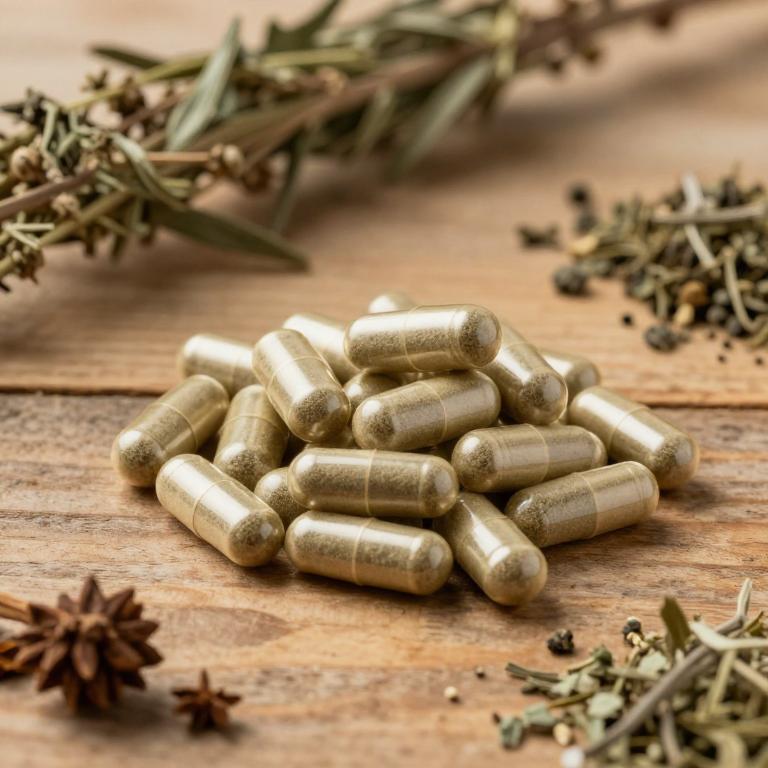
Thymus vulgaris, commonly known as thyme, is a popular herbal remedy that has been traditionally used for its antimicrobial and immune-boosting properties.
Thymus vulgaris herbal capsules are formulated to support the body's natural defenses against infections, particularly respiratory and urinary tract infections. These capsules contain essential oils and phytochemicals such as thymol, which exhibit strong antibacterial, antifungal, and antiviral effects. The standardized extracts in these capsules ensure consistent potency and bioavailability, making them a reliable choice for natural infection support.
When used as part of a holistic approach, thymus vulgaris herbal capsules may help reduce the severity and duration of certain infections.
6. Aloe vera (Aloe barbadensis)
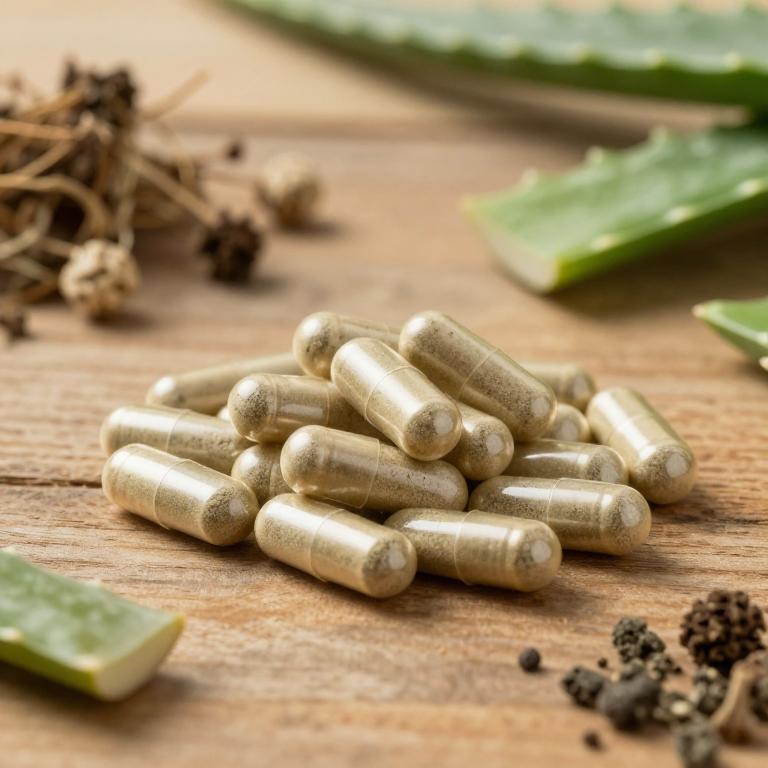
Aloe barbadensis, commonly known as aloe vera, is often used in herbal capsules for its potential antimicrobial and anti-inflammatory properties.
These capsules may help support the body's natural defenses against various infections, including skin infections and urinary tract infections. The active compounds in aloe vera, such as polysaccharides and enzymes, are believed to enhance immune function and promote tissue repair. While some studies suggest its efficacy in reducing inflammation and improving wound healing, more research is needed to confirm its role in treating infections.
As with any supplement, it is important to consult a healthcare professional before using aloe barbadensis capsules for medical conditions.
7. Salvia (Salvia officinalis)
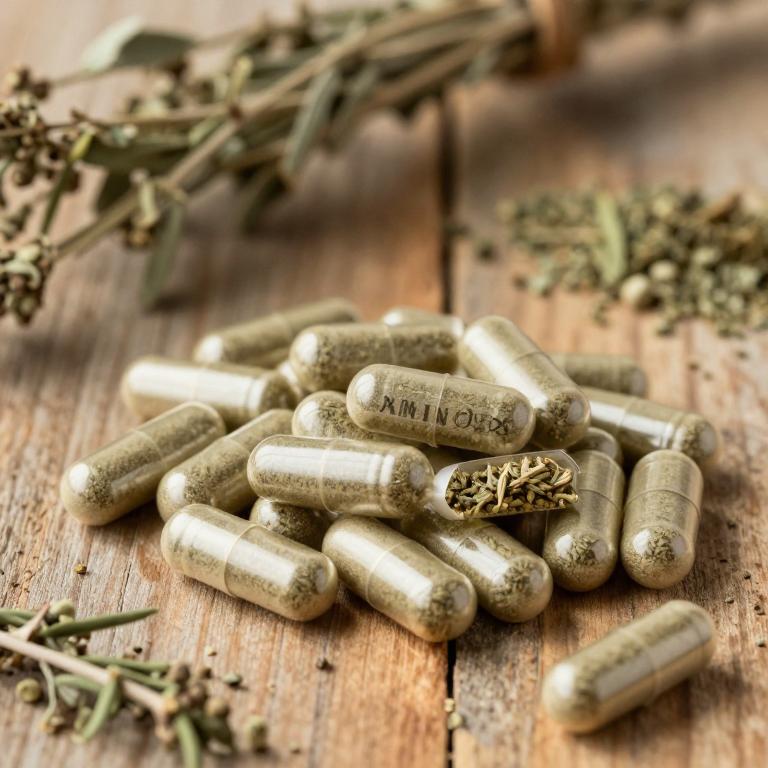
Salvia officinalis, commonly known as sage, has been traditionally used for its antimicrobial properties, making it a potential natural remedy for infections.
Herbal capsules containing salvia officinalis extract are often used to support the body's immune response against bacterial and viral infections. Studies suggest that compounds in sage, such as thujone and flavonoids, may exhibit antibacterial and antifungal activities. However, while some preliminary research supports its use, more clinical trials are needed to confirm its efficacy for specific infections.
As with any herbal supplement, it is important to consult a healthcare professional before use, especially for individuals with existing health conditions or those taking other medications.
8. German chamomile (Chamomilla recutita)
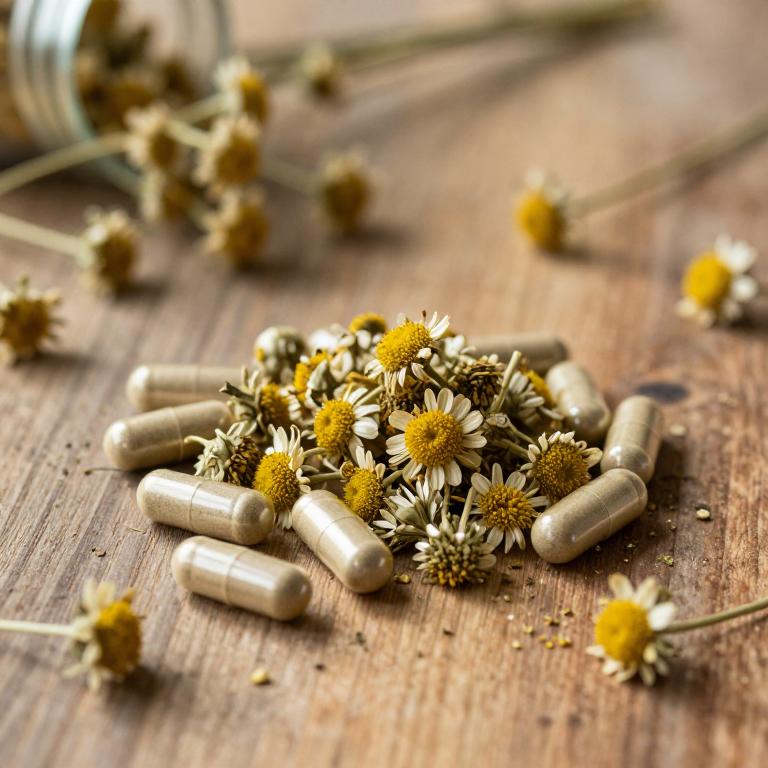
Chamomilla recutita, commonly known as German chamomile, is often used in herbal capsules for its potential anti-inflammatory and antimicrobial properties.
These capsules are typically made from the dried flower heads of the plant and are used to support the body's natural defenses against infections. While chamomile is generally considered safe for short-term use, it may interact with certain medications and is not recommended for everyone, especially those with allergies to plants in the daisy family. Some studies suggest that chamomile extracts may help reduce symptoms of minor infections, though more research is needed to confirm its efficacy.
As with any herbal supplement, it is advisable to consult a healthcare professional before use, especially for individuals with chronic health conditions or those taking other medications.
9. Turmeric (Curcuma longa)

Curcuma longa, commonly known as turmeric, is a widely used herbal remedy known for its potent anti-inflammatory and antimicrobial properties.
Curcuma longa herbal capsules are often taken to support the body's natural defenses against infections due to the presence of curcumin, a bioactive compound with broad-spectrum antimicrobial effects. These capsules may help reduce inflammation and combat bacterial, viral, and fungal infections when used as part of a holistic health approach. While they are generally considered safe, it is important to consult a healthcare provider before using them for persistent or severe infections.
Curcuma longa capsules can complement conventional treatments but should not replace medical advice or prescribed therapies.
10. White cedar (Thuja occidentalis)
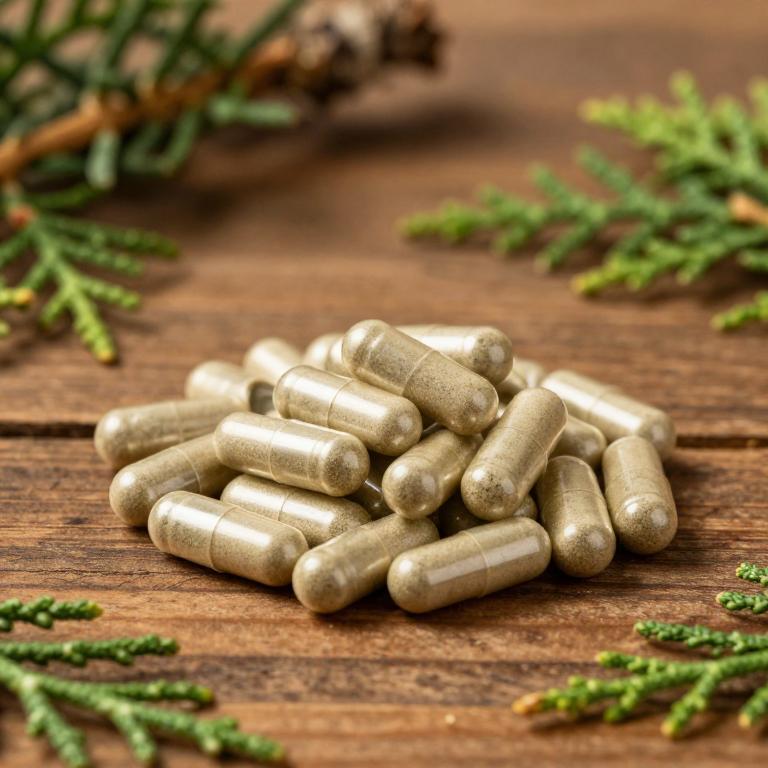
Thuja occidentalis, also known as eastern arborvitae, is a herbal remedy that has been traditionally used for its antimicrobial properties.
Herbal capsules containing thuja occidentalis are often marketed for their potential to support the body's defense against infections, including respiratory and urinary tract infections. The plant contains compounds such as berberine and thujone, which may contribute to its antimicrobial effects. However, it is important to note that while some studies suggest possible benefits, scientific evidence supporting its efficacy for specific infections remains limited.
As with any herbal supplement, it should be used under the guidance of a healthcare professional to ensure safety and appropriateness for individual health conditions.